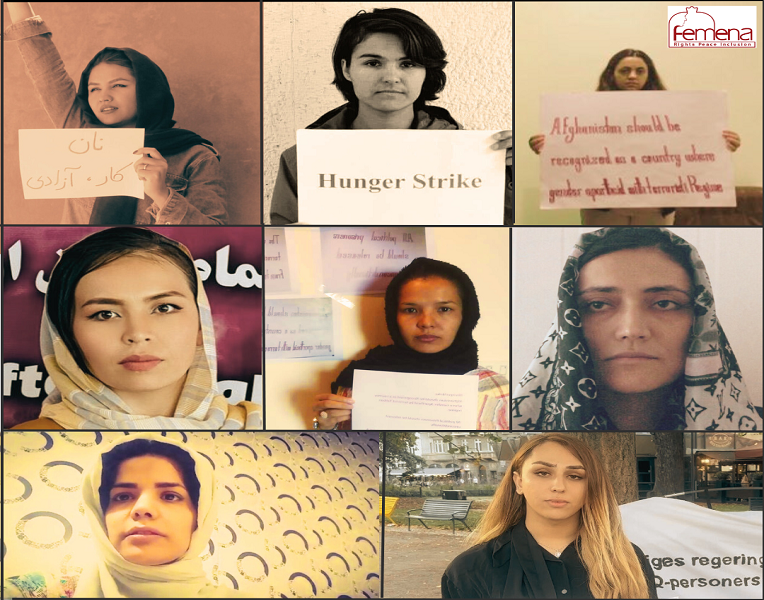
On September 1st, a courageous group of Afghan women activists, including Tamana Zaryab Paryani, Marzia Mohammadi, Roqia Saee, Sabira Akbari, Wahida Amiri, and Nayera Kohistani, initiated a hunger strike to protest the Taliban’s oppression of women. Their demands are clear: they call on the international community to acknowledge the systematic discrimination inflicted upon Afghan women by the Taliban and to hold the Taliban accountable for their grave human rights abuses.
The activists specifically demand: recognition of the Taliban’s gender apartheid in Afghanistan, the release of all political prisoners from Taliban detention, and the imposition of travel bans on Taliban leadership. Although Tamana Zaryab Paryani and some of her colleagues ended their 12-day hunger strike on September 12th, their commitment remains unwavering. In a shared statement, they declared, “Our hunger strike may have concluded, but we are embarking on a new phase of our struggle. We will not stay silent until our demands are recognized.”
Meanwhile, other Afghan activists worldwide who joined this protest continue to amplify their voices, shining a spotlight on Afghanistan and the ongoing challenges faced by Afghan women. Notably, Mohra Faby, a transgender LGBTQI activist joined the strike seven days ago and Zainab Entezar, a filmmaker, has been on a hunger strike for the past two weeks.
Despite employing peaceful means of resistance against the Taliban’s rule for the past two years, Afghan women have seen little meaningful action from the international community.
Femena stands in solidarity with the women of Afghanistan and urges key international stakeholders in Afghanistan not to turn a blind eye to the ongoing human rights crisis that has resulted in the systematic erasure of Afghan women from society. The Taliban have issued more than 65 directives severely curtailing women’s rights, including their freedom of movement, access to education, employment, and basic services. Most recently, the Taliban imposed a ban on women accessing Band-e-Amir National Park in Bamyan province, Afghanistan. This oppressive regime must not be tolerated, and the world must act to protect the rights and dignity of Afghan women.

